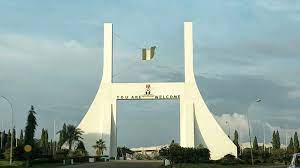In most parts of the country, heavy downpour has been regular. Despite the abundant flow of rain water and the flooding, many people are still unable to access potable water. What an irony! As I was ruminating over this, I stumbled on a discourse that seems interesting. Over the centuries, the Lake Chad, a major source of water supply to Nigeria and other African countries, had sustained agriculture and other commercial activities, as its fresh water and resources have been a source of livelihood to many. Lake Chad remains an important water resource because of the ability to provide jobs to many people at the same time.
Over the years, a number of policies and programmes have been formulated to promote agricultural practices in the country without much emphasis on water development. These include the Farm Settlement Scheme, Operation Feed the Nation, Green Revolution, FADAMA, National Agricultural Land Development Authority (NALDA) and the various agricultural-financing bodies, among others. Despite these laudable programmes, many Nigerians are still hungry and jobless. This submission was made by Professor Johnson Adewumi, a Professor of Soil and Water Engineering, College of Engineering (COLENG), Federal University of Agriculture, Abeokuta (FUNAAB), Ogun state.
He charged the government, its agricultural agencies and individual farmers to be engaged and be committed to crop farming in order to get the best and avoid the problem of poverty in the land. Sharing his research works and its benefits, Professor Adewumi said he had worked on the Drip Irrigation Project, which was funded by the Agricultural Research Council of Nigeria (ARCN), that was meant to conserve water for crop production. He also revealed that under his supervision, irrigation software had been written and is waiting to be patented for anyone who wishes to write or use it. He described Nigerian land as a blessed one, where irrigation can be practiced in any part of the country. Drawing examples from the nation of Israel, Professor Adewumi said irrigation was Israel’s main source of livelihood, which it practiced successfully, considering the country’s peculiar nature of land.
He went further to stress that if irrigation was to be fully practiced in Nigeria, the diverse nature of the country should be considered, as much money would be spent in the southern part of the country for clearing before irrigation could be carried out, unlike in the north, where less would be spent, considering the nature of the land. As a way of helping the country to get out of food crisis, Professor Adewumi said the government should make agriculture its top priority. According to him, “If agriculture is the priority of leaders, something meaningful will be done. Everything depends on the individual that is there, to make it work at the end of the day”. He also frowned on what he described as the over-dependence on government for everything, as it is obtainable in the country in which the people tend to think less with what they can do for themselves, charging the public authorities to empower the teeming unemployed youths to go into agriculture by providing the required mechanisation.
Despite the revelations by researchers, academics and experts, it is discouraging that most of the valuable suggestions are either poorly implemented or never executed at all. That is why findings by Professor Adewumi should be critically examined by the federal, state and local governments in the country for possible adoption. Not only that, previous reports and recommendations from our research institutes and higher educational institutions should not be allowed to gather dust. Nigerians have no basis being hungry because the nation is blessed with rich, abundant natural, human and water resources. What we only need is the combination of good leadership and the commitment to turn around our fortunes for the benefit of all and not for just a few persons.
We need to urgently have a refocus in terms of agriculture, if we are ready to move out of lack and misery. The professor had observed that presently, people were no longer interested in farming because nobody wants to bend their back tiling and clearing the soil. According to him, majority of people that even have the money for farming would rather prefer to go into fishery, piggery and poultry farming, which seems to require less energy to carry out. Based on this, he called on the federal government to open up large hectares of land in every geo-political zone of the country and practice mechanised farming.
This arrangement should be carried out in every local government and with the required equipment, tractors and combine harvesters, among others. And every year, monitor what every local government is producing. As concerted efforts are being made to recharge Lake Chad, the cost of recharging the lake has been put at between $15 billion and $20 billion. This is where members of the basin should ensure that all that is necessary is put in place to salvage this rich resource. For food security and sustainable development to take place, more attention should be accorded to water resource management. Water, it is said, is life!



